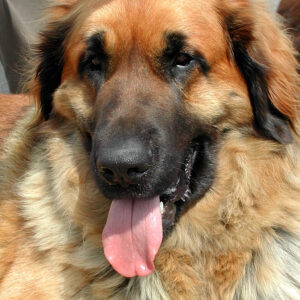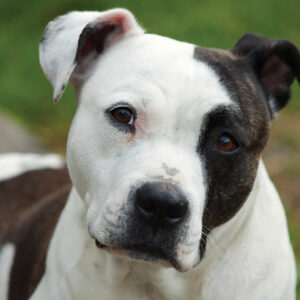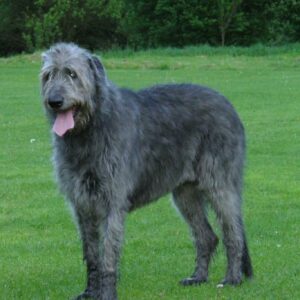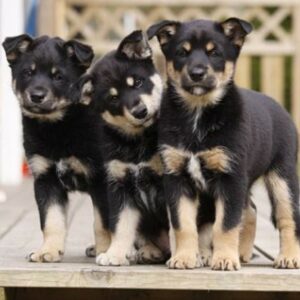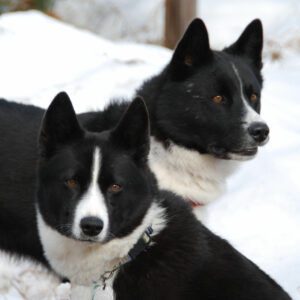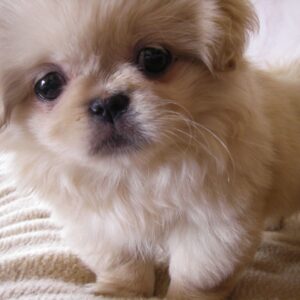Are you looking for a loyal and affectionate companion? Then a Japanese Chin might be the perfect dog for you. This breed is known for being good with children and other pets, as well as having an alert and playful personality. Keep reading to learn more about the history, characteristics, and care of this adorable pup.
History
The Japanese Chin, also known as the Japanese Spaniel, has a long and fascinating history. They were highly valued in Japan, where they were a favorite of the royal family and nobility for centuries. In fact, they were often given as gifts to emissaries and diplomats from other countries. The breed first arrived in Europe in the 17th century, where they quickly became popular among the wealthy. Today, they are a beloved companion dog in many parts of the world.
One interesting fact about the Japanese Chin is that they are not actually from China, despite their name. Instead, they were developed in Japan through careful breeding of other small dog breeds like the Pekingese and the Shih Tzu. This selective breeding resulted in the distinctive look and personality of the Japanese Chin we know today.
/GettyImages-915830672-99aa3399478048c2a41b5c0b33588e4c.jpg)
Location of Origins
As mentioned, the Japanese Chin originated in Japan. The exact date of their origins is unknown, but they are believed to have been around for hundreds of years. They were originally bred to be companion dogs, and their small size and affectionate nature made them ideal for this role. Today, they are still called “chins” in Japan, which means “royal person”.
While they are still popular in Japan, they are also a beloved breed around the world. In the United States, for example, they are recognized by the American Kennel Club and are a member of the toy group. They are also recognized by other kennel clubs in other parts of the world, including the United Kingdom, Australia, and Canada.
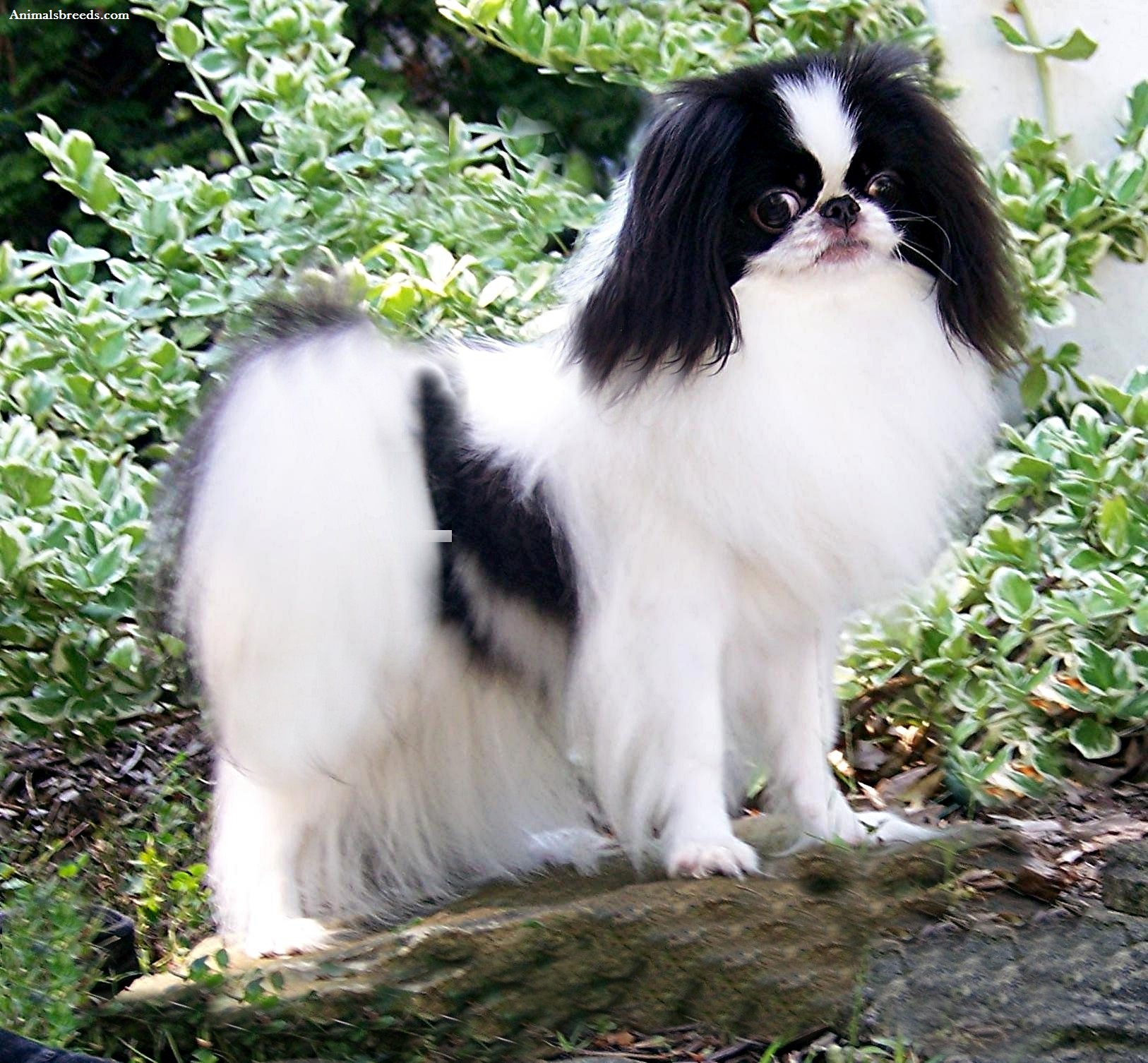
Characteristics
The Japanese Chin is a small dog, usually weighing between 4 and 15 pounds. They have a distinctive appearance, with long, silky fur and a flat face. They are usually black and white, but can also have other colors such as red or cream. Their ears are large and feathered, and their tails are carried over their backs in a distinctive curve.
One of the most distinctive things about the Japanese Chin is their personality. They are known for being affectionate, playful, and alert. They are also a relatively quiet breed, which makes them ideal for apartment living. However, they can be timid around strangers and may require some socialization to become comfortable with new people or situations.
Due to their small size, the Japanese Chin does not require a lot of exercise. A short walk or play session each day is usually sufficient. They are also adaptable to different living situations, whether it’s a small apartment or a large house with a yard. However, they do require regular grooming in order to keep their long, silky coat looking its best.

Choosing the Best Foods
The Japanese Chin is a small dog, which means they require a diet that is high in protein and fat to maintain their energy levels. It’s important to choose a high-quality commercial dog food that is specifically formulated for small breeds, as this will provide the necessary nutrients and calories without overloading their digestive system.
It’s also a good idea to avoid feeding your Japanese Chin table scraps or human food, as this can cause health problems or lead to obesity. Instead, stick to a balanced, healthy diet that meets their nutritional needs.
If you want to feed your Japanese Chin a homemade diet, it’s essential to consult with your veterinarian or a canine nutritionist to ensure that the diet is balanced and contains all the necessary nutrients. They may also be able to recommend supplements to ensure that your dog receives all the necessary vitamins and minerals.
Training
The Japanese Chin is an intelligent breed that responds well to positive reinforcement training. They are highly trainable and enjoy learning new tricks and commands. However, it’s important to be patient and consistent when training a Japanese Chin, as they can be sensitive to harsh words or punishment.
Make sure to start training your Japanese Chin at a young age, and use positive reinforcement methods such as treats or praise to reward good behavior. Consistency is key to effective training, so make sure to establish clear rules and boundaries from the beginning.
It’s also important to socialize your Japanese Chin from a young age so that they become comfortable with different people, animals, and situations. This can help prevent shyness or fearfulness later on in life.
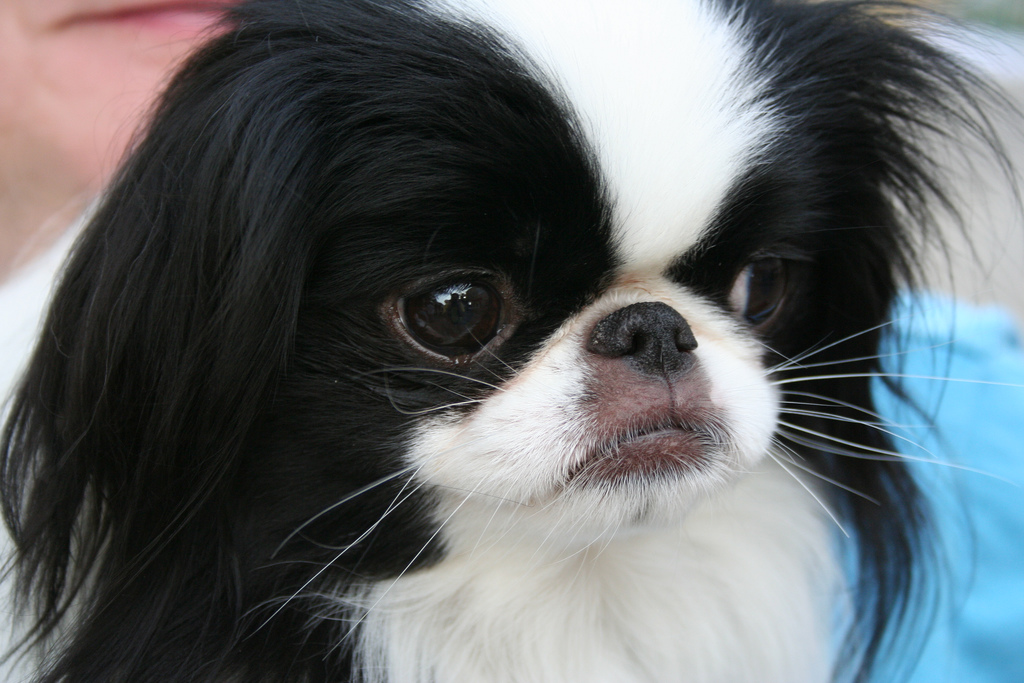
Taking Care
The Japanese Chin requires regular grooming in order to maintain their long, silky coat. This includes brushing several times a week to prevent matting or tangles, as well as regular bathing to keep their coat clean and shiny. It’s also important to trim their nails regularly and clean their ears to prevent infections.
While the Japanese Chin is a relatively healthy breed, they can be prone to certain health issues such as eye problems or ear infections. It’s important to take your Japanese Chin to the veterinarian for regular check-ups and to address any health concerns promptly.
Finally, make sure to provide your Japanese Chin with plenty of love and attention. This breed thrives on affection and enjoys spending time with their family. They make great lap dogs and are the perfect companion for those who want a small, affectionate pet.
FAQs
Are Japanese Chins hypoallergenic?
No, Japanese Chins are not considered to be hypoallergenic. While they have a single layer of fur, they do shed and can cause allergic reactions in some people.
Do Japanese Chins get along with children?
Yes, Japanese Chins are known for being good with children. However, as with any breed, it’s important to supervise interactions between children and dogs to prevent any accidents or injuries.
Do Japanese Chins bark a lot?
No, Japanese Chins are generally a quiet breed. However, they may bark to alert their family to visitors or other changes in their environment.
Conclusion
If you’re looking for a loyal and affectionate companion, the Japanese Chin might be the perfect dog for you. This breed has a long and fascinating history, and is known for being gentle, playful, and alert. While they require regular grooming, they are low-maintenance in terms of exercise and adapt well to different living situations. With proper care, training, and attention, the Japanese Chin can be a wonderful addition to any family.

